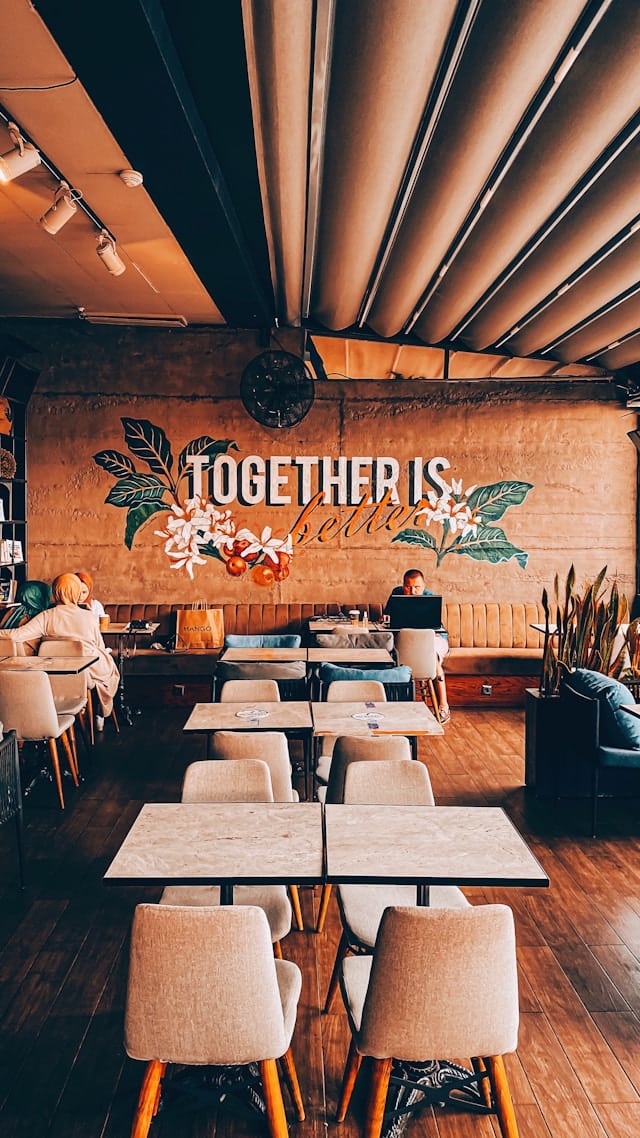The environmental concerns associated with single-use plastic are undeniable. As such, there has been a significant shift in consumer preferences, with more and more individuals opting for sustainable alternatives. In response to this, UK cafes are keenly exploring innovative techniques to reduce the use of single-use plastics in their food packaging and serving materials – from biodegradable coffee cups to reusable food containers. This article will explore these initiatives and delve into how they’re changing the face of the UK’s cafe scene.
The Plastic Problem and the Role of UK Cafes
The impacts of single-use plastic on our environment have been widely documented. These materials, often used for food packaging or as coffee cups, are largely non-degradable and contribute significantly to waste worldwide. In response, many customers are now calling for businesses to take responsibility and implement sustainable alternatives.
Sujet a lire : How to Build a Cybersecurity Framework for a UK Fintech Startup?
Cafes in the UK are a significant contributor to this problem. A large number of these establishments rely heavily on plastics for takeaway service, particularly single-use plastic cups. To address this issue, many cafes are now turning to innovative solutions to not only meet customer demands but also reduce their environmental footprint.
Exploring Sustainable Alternatives to Single-Use Plastics in UK Cafes
In the fight against single-use plastic waste, cafes across the UK are focusing on alternative materials and packaging solutions. Bioplastics, made from renewable resources, are a popular choice. These products decompose more quickly than traditional plastic, making them a more environmentally-friendly option. However, their production process can be more energy-intensive, leading some businesses to explore other alternatives.
Cela peut vous intéresser : What Are the Key Considerations for Launching a Niche Perfume Brand in the UK Market?
One such alternative is the use of reusable containers and cups. Many cafes are now encouraging customers to bring their own mugs for coffee or offering discounts for those who do so. Some establishments have even started to implement a deposit system for their own reusable cups and containers, which customers can return after use for a refund.
Innovative Recycling Techniques in Play
While the use of alternative and reusable materials can help to significantly reduce the amount of plastic waste produced by cafes, recycling remains a critical part of the equation. Innovative recycling techniques are now being deployed to ensure that even if plastic is used, it doesn’t end up in landfills.
For instance, some cafes are partnering with waste management companies to ensure that their plastic waste is correctly sorted and processed. Others are implementing in-house recycling initiatives, educating their staff and customers about the importance of proper plastic waste management.
The Impact of Legislative Measures and Bans
Legislation and public policy also play a vital role in driving the shift towards sustainable practices in cafes across the UK. Measures such as the ban on single-use plastics have encouraged businesses to explore and adopt alternatives in their operations.
However, the transition away from plastics is not without its challenges. Many cafes are grappling with the higher costs associated with biodegradable or reusable materials. These costs are often transferred to customers, which can impact a cafe’s competitiveness in the market.
Despite this, the shift towards more sustainable practices is an investment that will pay off in the long run. As consumers become more environmentally-conscious, they are more likely to patronize businesses that reflect their values. Cafes that are proactive in reducing their use of single-use plastics will not only contribute to a more sustainable environment but will also build a positive reputation among their customer base.
Looking to the Future: What’s Next for UK Cafes?
The efforts to reduce single-use plastic in UK cafes are only just beginning. As more and more businesses join the movement, the industry will continue to innovate and find new ways to reduce waste and improve sustainability.
Looking forward, we can expect to see more widespread adoption of reusable containers and cups, as well as an increase in the use of bioplastics. There may also be advancements in recycling technology that make it easier and more cost-effective for cafes to manage their waste.
While the journey towards a plastic-free future will be a long one, the steps being taken today by cafes across the UK are promising indications of what is to come. The commitment these businesses are showing to reducing plastic waste and promoting sustainability is not only a win for the environment but also proof that the hospitality industry can adapt and thrive in a changing world.
The Power of Consumer Choice and Education
Consumer behaviour plays a pivotal role in influencing the trajectory of alternatives to single-use plastics. When customers consciously choose establishments that advocate sustainable practices, they directly contribute to reducing plastic pollution. The power of consumer choice is indeed a driving force towards an eco-friendlier future. UK cafes are recognising this and are in turn making efforts to educate their customers about the importance of their choices.
One of the ways UK cafes are doing this is through the inclusion of information about their green initiatives in their marketing materials. For instance, they may highlight the fact that they use biodegradable coffee cups or that they have a deposit system for reusable food containers. By doing this, they not only promote their own sustainability efforts, but also raise awareness about the broader environmental issues linked to single-use plastics.
Cafes are also training their staff to provide information about the various initiatives and why they are essential. This not only enables employees to answer customer queries effectively, but also fosters a culture of sustainability within the organization. Additionally, engaging workshops and events focused on environmental conservation can help foster a sense of community around the cafe and its green initiatives.
While these initiatives require an investment of time and resources, they can have a significant impact on the cafe’s customer base. Consumers today are more informed and conscious about the environmental impact of their choices. As such, they are likely to support businesses that align with their values. UK cafes that proactively engage with their customers and educate them about their sustainability efforts will likely see a positive impact on their reputation and overall customer loyalty.
Conclusion: Striving Towards a Sustainable Future
The single-use plastic problem is a global challenge that requires concerted effort from all sectors, including the food and beverage industry. UK cafes, being a significant part of this sector, have a responsibility to contribute to this cause. Through innovative techniques such as the use of bioplastics, reusable packaging, and recycling initiatives, these establishments are taking steps towards a more sustainable future.
However, the journey is far from over. The road towards a sustainable future will require continuous innovation, investment, and commitment from these cafes. The exploration of active intelligent packaging, designed to extend the shelf life of products, can be one such avenue. This not only aids in reducing plastic waste but could also help manage food waste.
Additionally, the role of consumers, legislation, and public policy cannot be overstated. As consumers, the power of our choices can drive significant change. Active participation in reducing the use of single-use plastics, by carrying our own coffee cups or choosing eateries that use eco-friendly packaging products, can make a real difference.
In conclusion, while the transition away from conventional plastics may be an uphill task, the current efforts by UK cafes are a step in the right direction. It is hoped that the rest of the world will take a leaf from their book and join in the fight against plastic pollution. The journey may be long, but with shared responsibility and concerted effort, a sustainable future is within our reach.
















